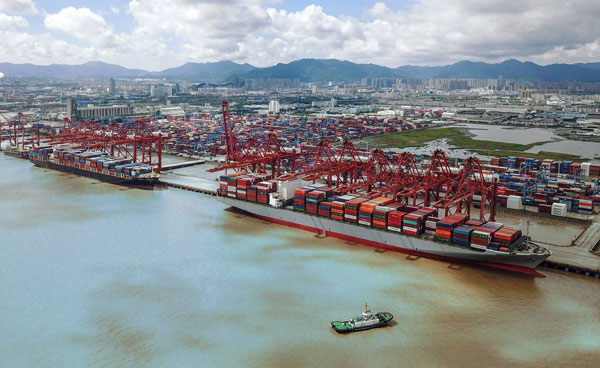
Container ships pictured in the Beilun No.2 terminal of the Ningbo-Zhoushan Port in Ningbo, East China's Zhejiang province on July 16, 2018 [Photo/IC]
Alphaliner, a shipping advisory service, recently released its annual "Top 120 Ports Worldwide in Container Throughput in 2018" list.
Ningbo-Zhoushan Port is now listed third in the world for container throughput, up from fourth a year earlier.
The port has managed to overtake Shenzhen by realizing an annual container throughput of more than 26.35 million twenty-foot equivalent units (TEUs), up 7 percent year on year, thanks to rapid growth in foreign trade during 2018.
The port handled around 21.63 million TEUs during January and November last year, up 8.2 percent from a year earlier.
In addition, it strengthened its ties with global shipping alliances such as 2M, OCEAN and THE in organizing shipping routes, and 246 routes were operated from the port by the end of 2018.
China's 10 major ports are all among the top 20 ports on the list.
The Port of Shanghai ranked first with an annual container throughput of 42.01 million TEUs –– the ninth consecutive year that the port has clinched the top position.
In general, the top 20 ports witnessed a slowdown in their container throughput growth in 2018 due to weak global trade. A total of 340 million TEUs were handled during the year, up 3.8 percent year on year –– lower than last year's 5.6 percent.
